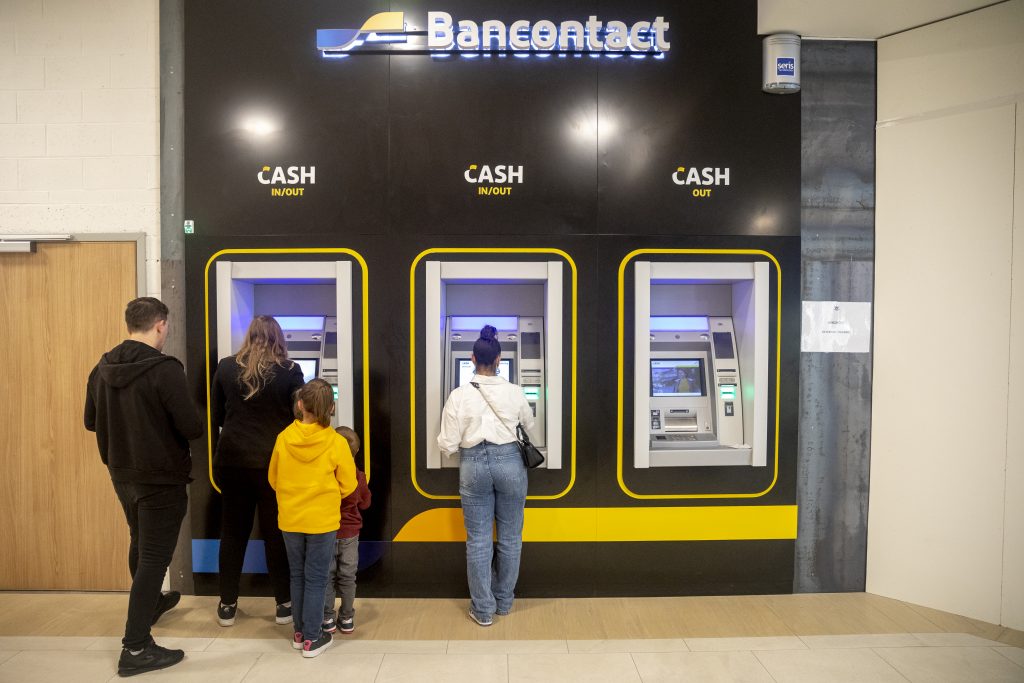Brussels parliament opposed a plan by four banks to install a network of ATMs across the city, reported Bruzz. The parliament fears an unequal distribution of ATMs in the capital and a wider digital divide. However, Brussels doesn't have the power to impose restrictions on banks, so any opposition would have to come from a federal level.
The 'Belgian ATM Optimization Initiative', also known as the 'Batopin' plan, was created in 2020 by the banks KBC, Belfius, ING Belgium and BNP Paris Fortis. The banks want to create neutral ATMs, meaning ATM machines that rid the banks of the responsibility of maintaining. Their strive for a more cashless society by overhauling payment methods with digital means.
The plan means that many ATM machines will disappear. By 2024, the banks want to go from 6,000 to 2,400 ATMs, even though the Batopin plan promised access to a neutral ATM within 5 kilometers for all residents.
Some Brussels politicians are skeptical about the plan, fearing an unequal distribution of vending machines which has lead to problems in municipalities such as Heembeek and Molenbeek.
Pros and cons
While the concept of a cashless society sounds nice in theory, there are actually pros and cons to the idea.
Benefits include: Reducing risk of crime, avoiding tax evasion, better hygiene and quicker transactions
Disadvantages include: Data privacy issues, digital literacy issues as many adults lack access to accounts and bank cards, lack of alternatives in case of cybercrimes.
Digital divide
In Belgium, almost all parties in the Brussels parliament were concerned about the distribution of ATM's and called for banks to stop removing existing ATMs.
According to research from Brussels employment agency, 'Bruxelles Formation', 25% of Brussels residents lack digital skills and would struggle if ATMs were removed.
As the Brussels parliament cannot take action, the issue is being considered at a federal level by MPs Pierre-Yves Dermagne and Vincent Van Peteghem.

